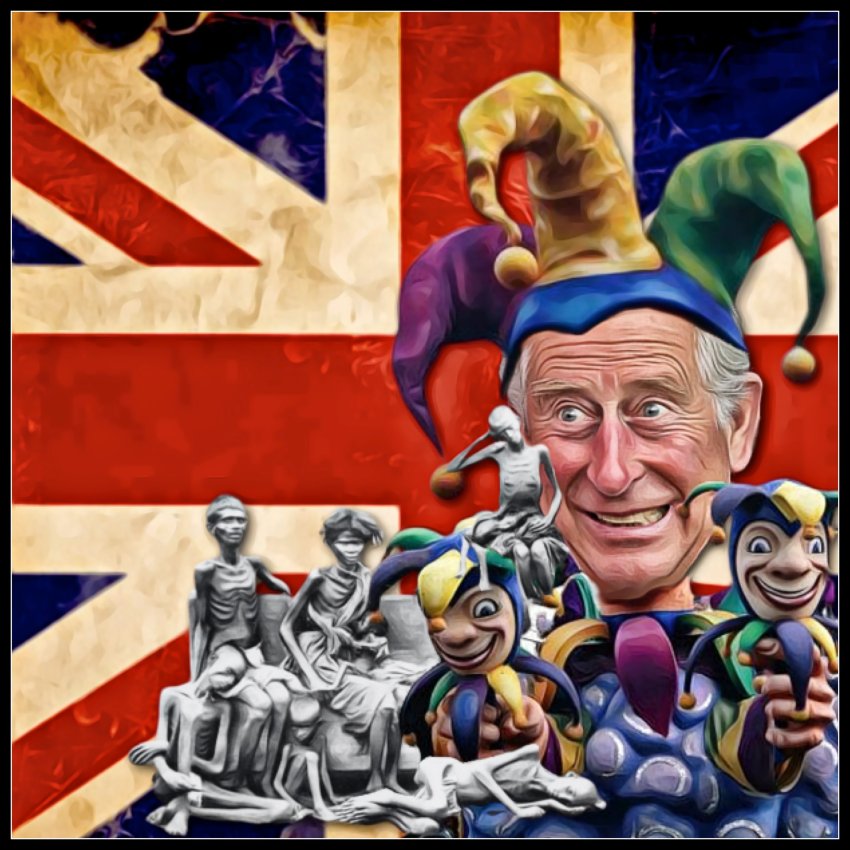
The Australian republican movement’s great mistake was to banish from discussion any reason beyond symbolism to be a republic, effectively treating the royals as beyond reproach.
Little wonder then that the reaction to the death of Elizabeth has been so absurd, with multiple newspapers running stories about clouds resembling the late monarch in heaven.
The Daily Mail even ran a story with a headline containing “Reunited in heaven: Inside Shane Warne’s sweet friendship with The Queen...”
This eulogising, worthy-of-North-Korean propaganda, has obscured the obvious point that the royal family are humans with a lot of unearned wealth. Such wealth, historically, has been stolen from British people, but also robbed and plundered from other lands.
Not only did the monarchy legitimise the slave trade, but it also benefited (and continues to benefit) from the history of slavery.
To this day, the monarchy vampirically leaches off the wealth generated by the taxpayer and clearly remains representative of the evils of colonisation, imperialism and class. In terms of ongoing theft, the royals have not returned the Koh-i-Noor diamond, despite requests from India and Pakistan.
Now, more than ever, it is worth considering why we haven’t, in the immortal words of photographer Annie Leibovitz, tried it “without the crown”?
For all the talk of public service, a servant of the people shouldn’t, after all, have servants.
The feudal logic that would make sense of this oxymoron is well past its use-by date.
The idea of harmless eccentricity is perhaps the best argument for monarchy, for its public spectacle.
But there is good reason to oppose the monarchy beyond the usual charge that it is undemocratic. After all, if (and there should be an emphasis on if) people like the monarchy, then how is it undemocratic?
Take, for instance, the elevation of David Cameron. Cameron was to be interviewed for a job in the Conservative Party in 1988. Allegedly, the official to interview Cameron received a phone call from Buckingham Palace. The male voice informed the official: “I am ringing to tell you that you are about to meet a truly remarkable young man.”
Cameron is related to the Queen. So too is Boris Johnson. It is important to discern the link between hereditary despotism and current nepotism and corruption.
This sort of privilege is far from harmless. One need only think of the dismissal of Gough Whitlam and consider Prince Charles’ friendship with John Kerr. The exact circumstances of the dismissal and potential involvement of the royals remain unknown to this day. A letter from Charles to Kerr seems to have endorsed the dismissal.
Other interventions against democracy certainly sought royal support. Louis Mountbatten was approached in 1968 to lead a coup against Harold Wilson’s Labour government. Supposedly the Queen persuaded him against it. While one could point to Elizabeth’s role in preventing a coup, it is worth underscoring that such a coup was rendered plausible by Mountbatten’s relationship to the crown.
That’s leaving aside the way hereditary privilege allowed the alleged paedophilic crimes of Mountbatten to remain relatively unknown and the accusation against Prince Andrew and his association with Jeffrey Epstein was settled out of court with a large sum of money.
The Queen’s name has been used more than once to topple governments.
One could point to an incident where scrambled communication on behalf of the Queen was inadvertently used as part of a CIA-backed coup that toppled the democratic government of Iran in 1953.
Everything that reflects badly on the institution of monarchy and the Queen, such as the Queen’s tax avoidance — which can be measured in the hundreds of millions — is attributed to being poorly advised, while every admirable intervention by the deceased Queen is considered evidence of her moral qualities, rather than those of her advisers.
One could go further and implicate the monarchy in neoliberalism, as the philanthropy embodied by Prince Charles came to be promoted alongside Jimmy Saville’s philanthropic endeavours.
Philanthropy was Margaret Thatcher’s ideological weapon: why should the taxpayer fund public programs when the wealthy will voluntarily provide support for the least fortunate?
Charles and the royal family came to depend on Saville’s counsel. The royals were so separated from the public, so out of touch, that they would actively seek Saville’s advice on how to manage the press. Saville was later knighted, a fact that helped deter investigations into his crimes.
The implicit authoritarianism of the monarchy has become more explicit as British police threaten republican protestors.
There have been at least three arrests on the pretext of breaching peace and public order. A barrister was even threatened with arrest if he wrote “not my king” on a placard. Activist Symon Hill was arrested and then released for asking who elected the king.
Let’s hope we all outgrow this desire for hereditary celebrity.
Amid the tributes to Queen Elizabeth, and now her son, King Charles III, it is worth recalling the words of John Wilmot, the Second Earl of Rochester addressed to Charles II: “I hate all Monarchs, and the Thrones they sit on/ From the Hector of France to the Culley of Britain.”
Whatever virtues individual royals may have, they signify a horrid and shameful institution.